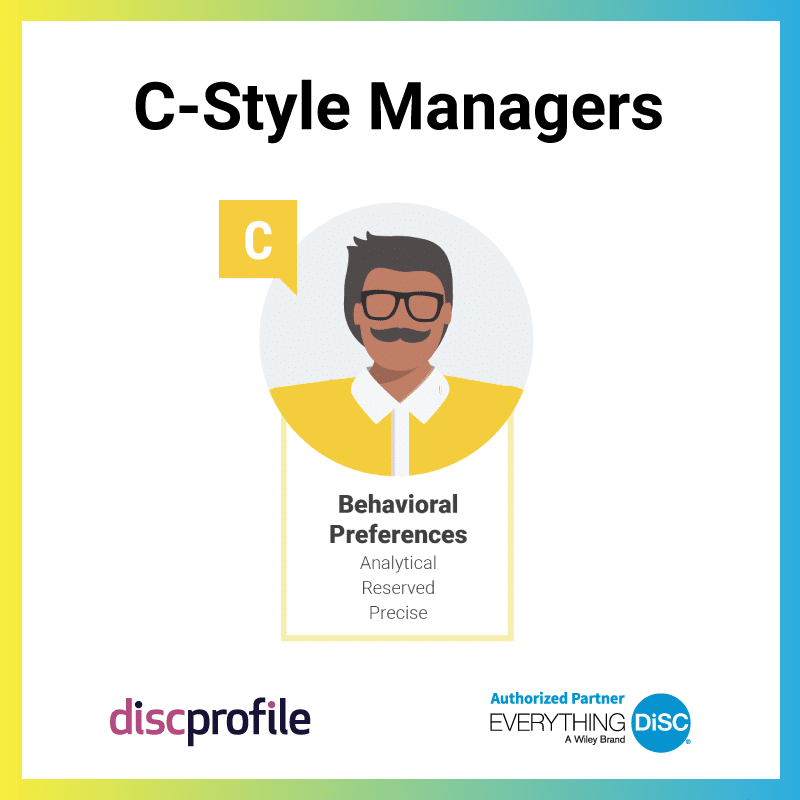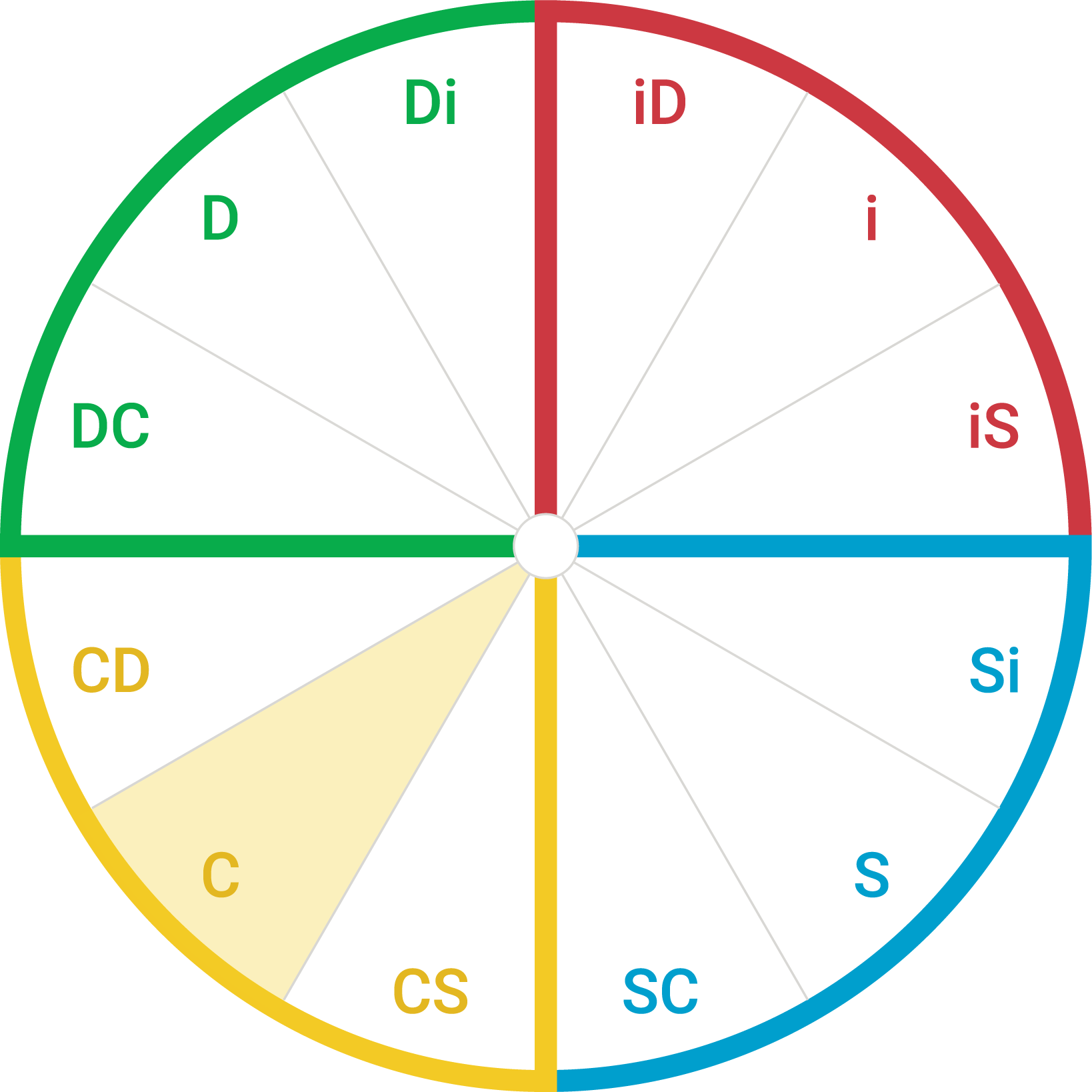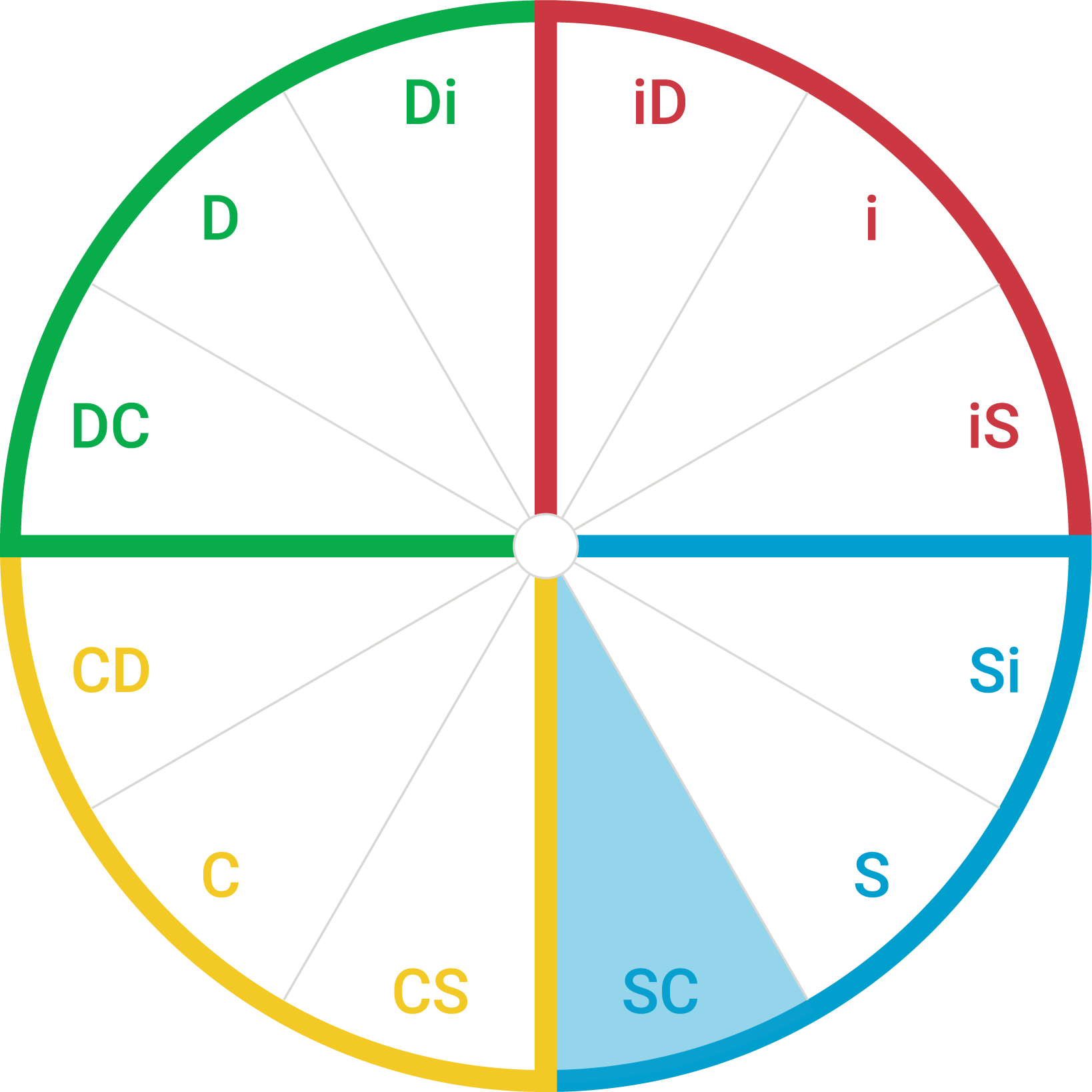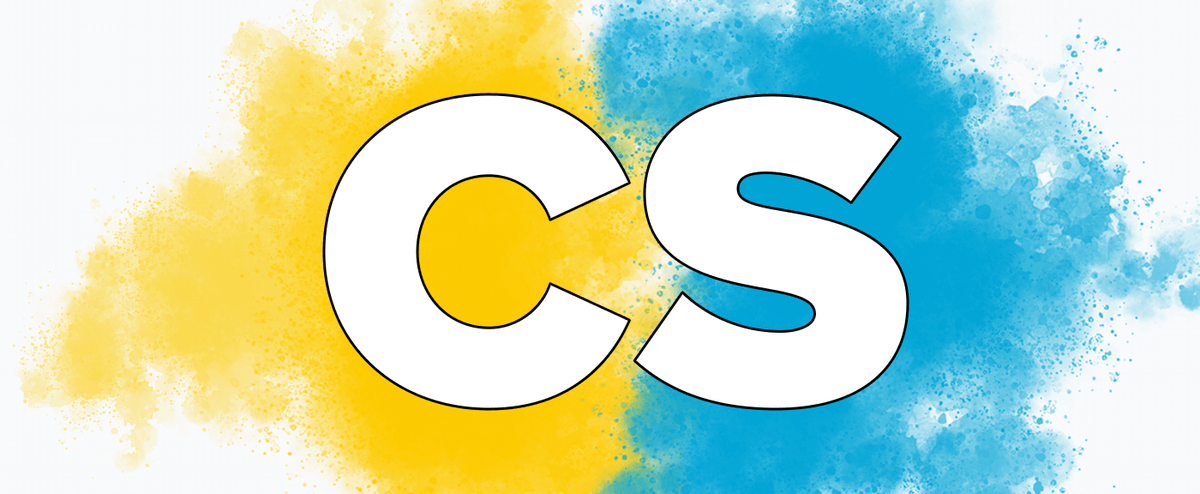
CS style
People with a DiSC style of CS value stability and minimizing risk. CS-style people tend to be self-controlled, modest, and soft-spoken. They are often precise and dependable, and typically prefer working behind the scenes rather than being in the spotlight.
What do the ‘C’ and the ‘S’ in DiSC mean?
The C in the Everything DiSC® model stands for conscientiousness. The S stands for steadiness. People with CS-type personalities display both the conscientiousness of the C style and the steadiness of the S style. This makes them cautious, reliable folks who are drawn to fixed environments, rather than situations with a lot of change and ambiguity.
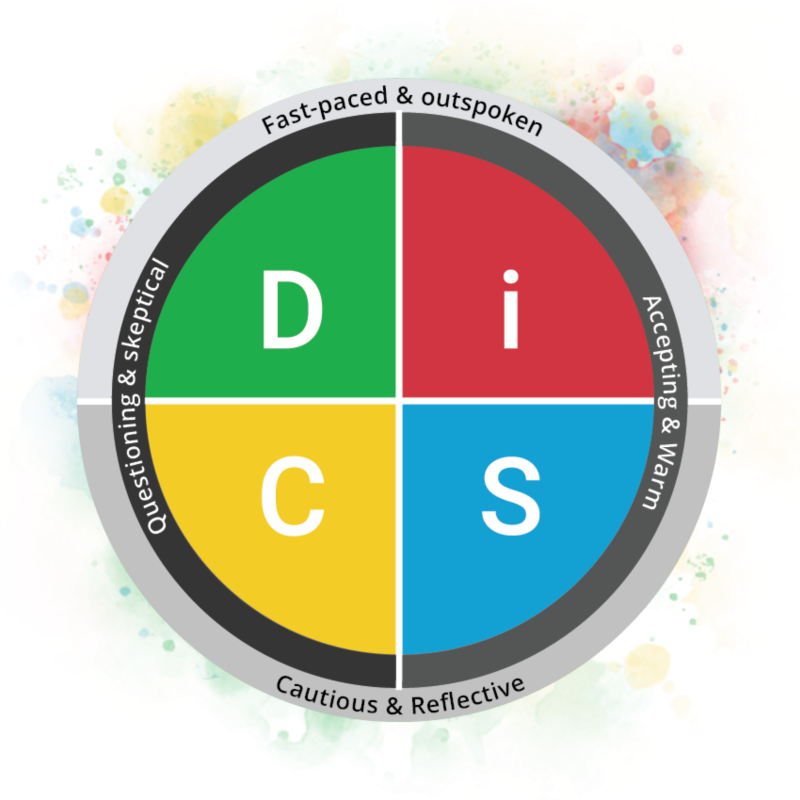
What is a DiSC style blend?
Everyone is a blend of all DiSC styles, but most people tend toward one or two. All DiSC styles are equal and valuable in their own ways. Your Everything DiSC assessment result will show either a one-letter style (D, i, S, or C) or a two-letter style (CS, Si, CD, etc.).
The styles with two letters are style blends, meaning that person's personality type falls near the border between two of the four main styles. If you have a blended style, you probably show traits of both styles. Thus, C styles often share characteristics with the neighboring S or D styles.
In your Everything DiSC report, look at where your dot is on the DiSC map. People with the CS blended style will see their dot in the C quadrant, close to the S quadrant.
Everything DiSC's twelve-style model is calibrated to provide more personalized and robust insights than assessments limited to four styles.

Dot placement
Every person's personality is different, even if they share DiSC styles. Looking at your dot placement on the Everything DiSC map gives you more detail about your traits relative to others of your style.
For example, people with CS styles share many traits, but each CS-style person exhibits the style differently. You might be strongly inclined to the CS style with your dot appearing on the far edge of the circle and between the C and S lines. If your dot is closer to the middle, you may exhibit these traits less often.
Learn more: DiSC dot and priorities explained
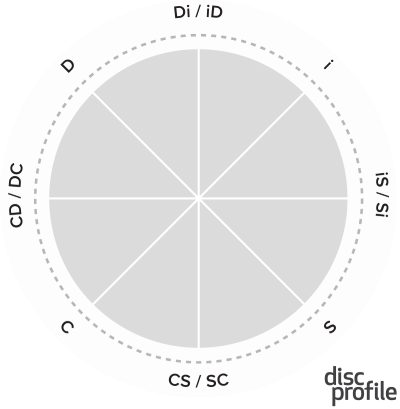
How do you get typed as a CS style in DiSC?
The basis of the DiSC model is a measurement of these two scales:
- pace (from fast-paced and outspoken to cautious and reflective)
- agreeableness (from questioning and skeptical to accepting and warm)
Where you fall on these two scales places you into one of the four primary DiSC quadrants.
However, this is only a starting place for the Everything DiSC profile. The assessment uses eight scales for much deeper insights.
As you might expect, people with the CS style score highest on the CS/SC scale. This scale measures a cautious, passive disposition using items such as, “I spend more time listening than talking” and “I tend to be soft-spoken.” Further, the responses of CS-style people show tendencies slightly more in line with the C style than the S style. C-style folks are often orderly and precise. People with S styles are likely supportive and warm. CS styles are a blend of the two, with a little more C in the mix.


